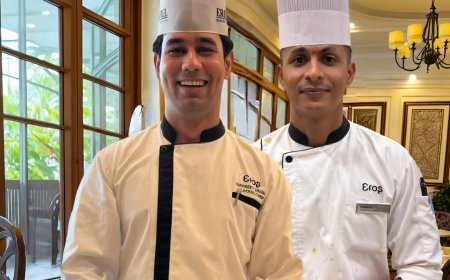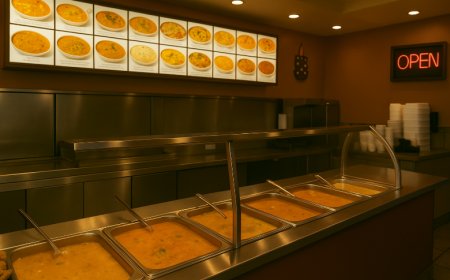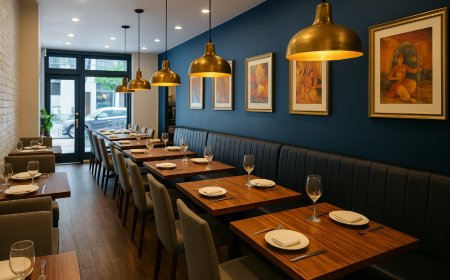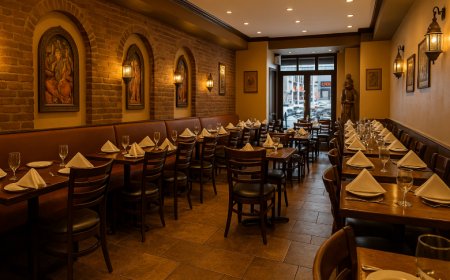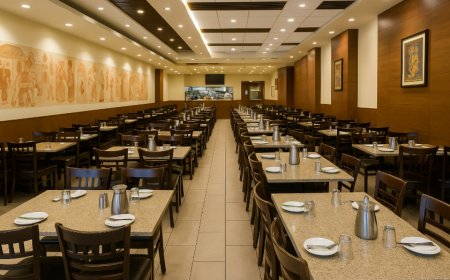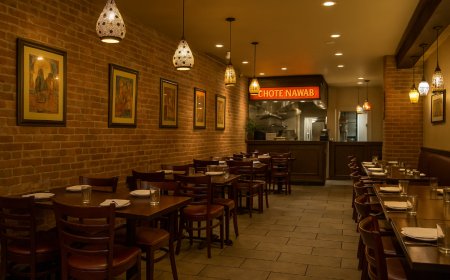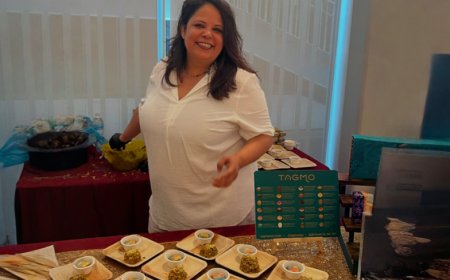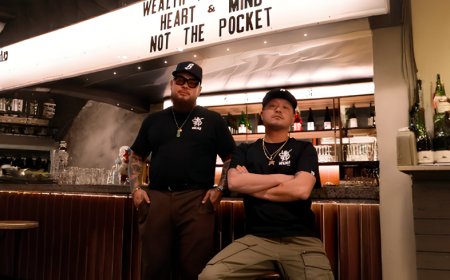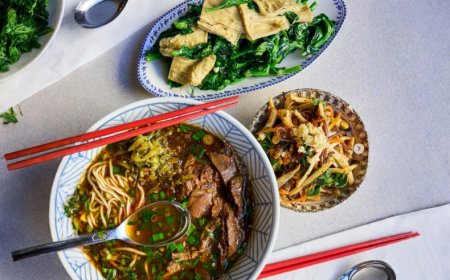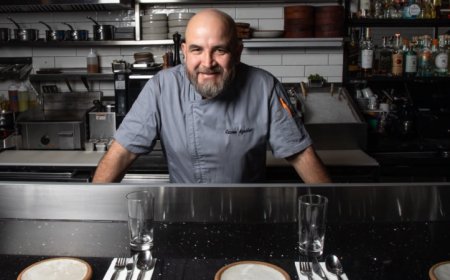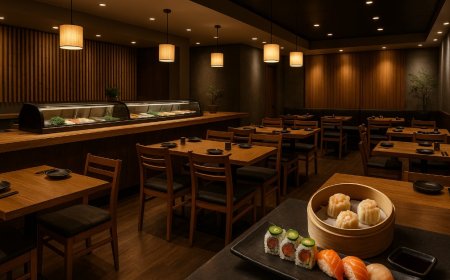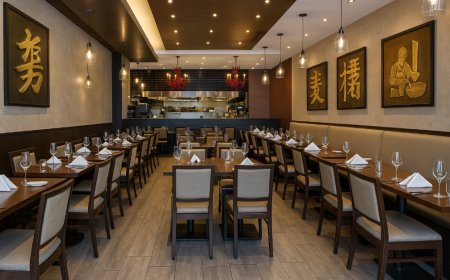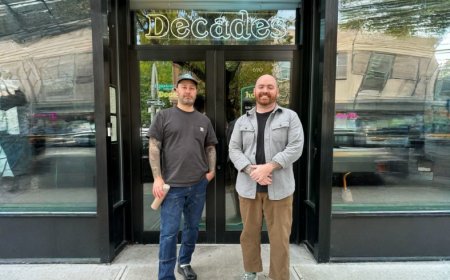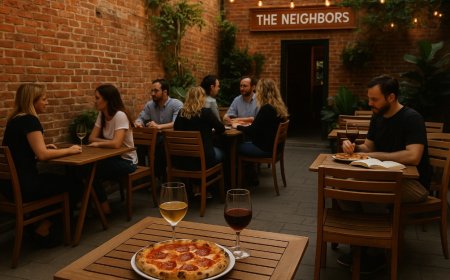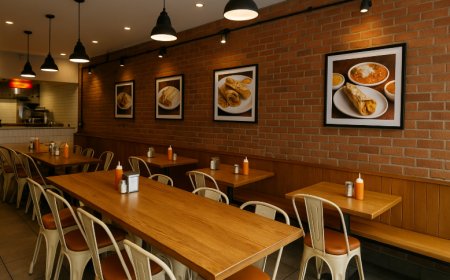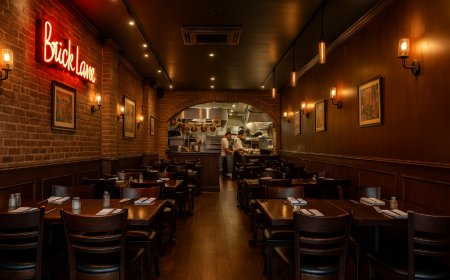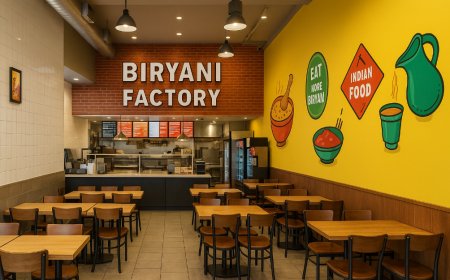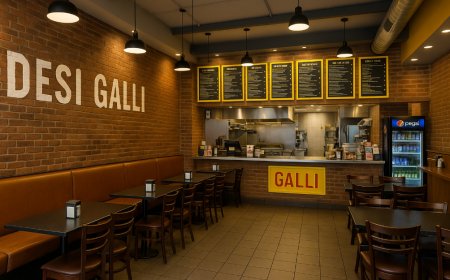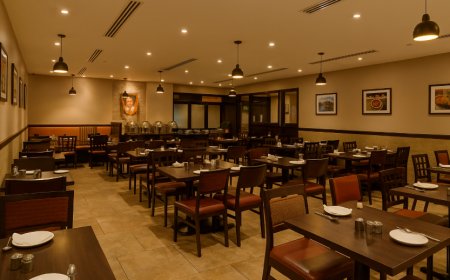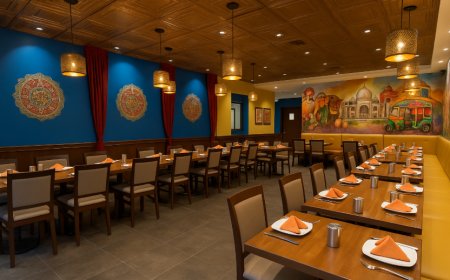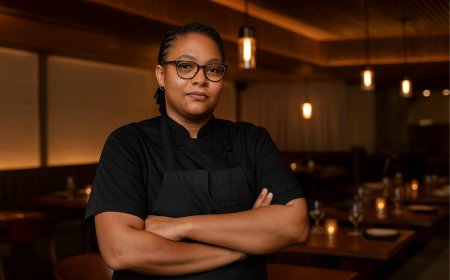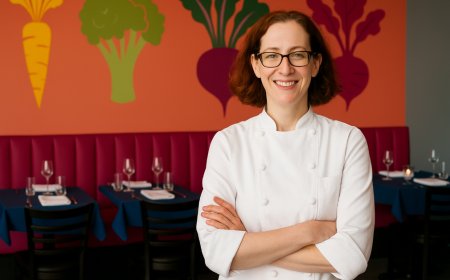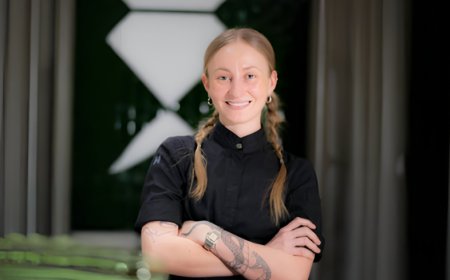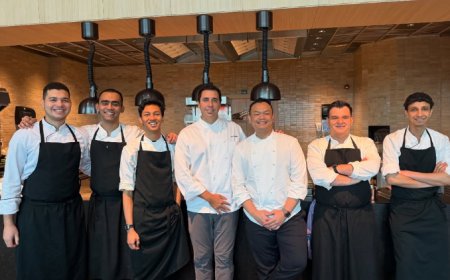Meju by Hooni Kim: A Deep Dive into Korea’s Fermented Soul in the Heart of Queens
Explore how Michelin-starred Chef Hooni Kim redefines Korean fine dining at Meju in Long Island City. Rooted in tradition, Meju celebrates the art of fermentation and Korea’s essential jangs in an intimate eight-seat setting.
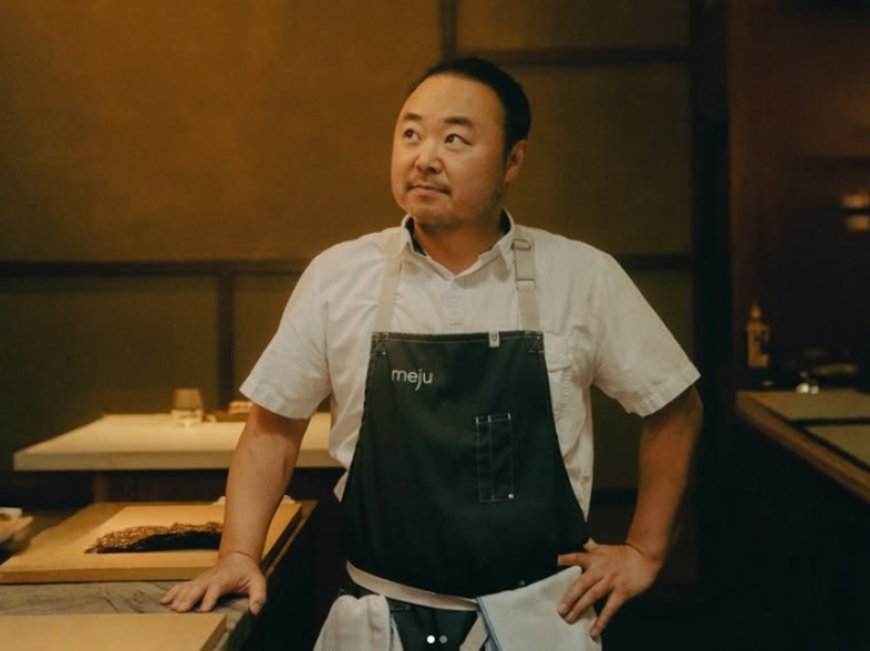
The Quiet Revolution at Meju
Tucked into a residential corner of Long Island City, New York, a culinary sanctuary is redefining what Korean cuisine can look—and taste—like. Meju, the brainchild of Michelin-starred chef Hooni Kim, offers something rare in the city’s thriving Korean dining scene: an unfiltered homage to deep-rooted tradition. In a sleek, minimalist space with only eight seats, diners are invited not into a restaurant, but into a conversation—one centered around Korea’s most elemental building blocks of flavor.
Meju is not the flashiest Korean restaurant in New York. You won’t find foie gras or caviar garnishes here. But what you will find is something far more valuable: a thoughtful exploration of jangs—Korea’s fermented pastes like doenjang, gochujang, and ganjang—that have shaped Korean kitchens for centuries.
The Story Behind the Concept
The name “Meju” itself offers the first clue. In Korean cuisine, meju refers to the brick-like blocks of dried soybeans that are the starting point for traditional fermentation. These blocks become the foundation for jangs, a cornerstone of Korean flavor profiles.
For Hooni Kim, Meju was born out of a desire to bridge a cultural and culinary gap. After gaining critical acclaim with Danji, the first Korean restaurant in the world to earn a Michelin star, Kim began to question the narrative surrounding Korean fine dining in New York. While contemporary Korean restaurants like Atomix and Jua thrilled with avant-garde interpretations, Kim noticed a missing piece: a space fully dedicated to tradition, without fusion or international flourishes.
With Meju, Kim set out to provide that reference point. His goal was simple but bold: introduce diners to the unadulterated essence of Korean cuisine—through the lens of fermentation.
A Chef’s Culinary Philosophy
Kim's philosophy doesn’t chase trends; it digs deeper. His approach is not about luxury in the Western sense, but about honoring process, patience, and purity. This is slow food at its most literal. Nearly every component of the menu is either handmade or cultivated with obsessive care. The house sesame oil takes over 30 minutes to produce a single cup. The gochugaru, or Korean red chili powder, is sourced from special chiles that Kim grows himself—ensuring every batch of kimchi reflects the exact profile he envisions.
But the true soul of Meju lies in its jangs. These fermented sauces are the products of wild fermentation—unpredictable, alive, and ever-evolving. Some have been aged for years. Others were handed down from mentors in Korea who have been practicing the craft for generations. One soy sauce served in the tasting menu is 129 years old. In a culinary landscape where everything moves fast, Meju chooses to pause—and ferment.
What Makes the Menu Special
Dining at Meju is an immersive, multi-course experience built around the jangs themselves. The tasting menu changes with the seasons, but the core remains consistent: every dish showcases how jangs transform ingredients into something transcendent.
Expect courses like seasonal fish brushed with house-aged ganjang or vegetables delicately layered with housemade doenjang. A small bowl of rice and kimchi might sound humble, but here, it's elevated through texture, depth, and the unmistakable aroma of homemade sesame oil.
There’s no fanfare—just quietly perfect dishes that allow Korea’s mother sauces to take center stage.
An Intimate Space with a Singular Focus
Part of what makes Meju so impactful is its setting. The restaurant is hidden within the back of the Little Banchan Shop, a storefront known for beautifully prepared Korean side dishes. The understated interior reflects Meju’s purpose: it is not a showcase for opulence, but a vessel for authenticity.
Serving just eight guests at a time, Kim fosters a deeply personal and educational experience. Diners often leave not only satiated but enlightened—walking away with a richer understanding of the complexities that define Korean cuisine.
Hooni Kim’s Culinary Journey
Before launching Meju, Chef Kim had already made his mark on the New York dining scene. A graduate of the Culinary Institute of America and an alum of fine dining establishments like Masa and Daniel, Kim brought technical precision to Korean cooking. His first venture, Danji, was a landmark for Korean-American cuisine—a place where Korean comfort food met French finesse.
But Meju marks a new chapter. It’s less about the chef’s innovation and more about cultural preservation. Through Meju, Kim honors his mentors in Korea and the generations who relied on fermentation not for flair, but for survival. And while the accolades continue—Meju currently holds the only Michelin star in Queens—the mission remains grounded in heritage.
Why Meju Matters in Today’s Culinary Landscape
As Korean cuisine continues its global ascent, restaurants like Meju are essential. They provide the context that gives meaning to more experimental interpretations. Meju doesn't compete with modern Korean restaurants; it complements them. It reminds diners—and chefs—where it all began.
In an age of flashy tasting menus and culinary theatrics, Meju is a quiet counterpoint. It speaks to diners who crave depth, substance, and a connection to something timeless.
Conclusion: Returning to the Roots
Meju isn’t just a restaurant—it’s a statement. A love letter to Korean tradition. A call to slow down, to savor, and to understand. In the hands of Hooni Kim, fermentation is not just technique—it’s storytelling. It’s culture. It’s memory.
What's Your Reaction?
 Like
0
Like
0
 Dislike
0
Dislike
0
 Love
0
Love
0
 Funny
0
Funny
0
 Angry
0
Angry
0
 Sad
0
Sad
0
 Wow
0
Wow
0
